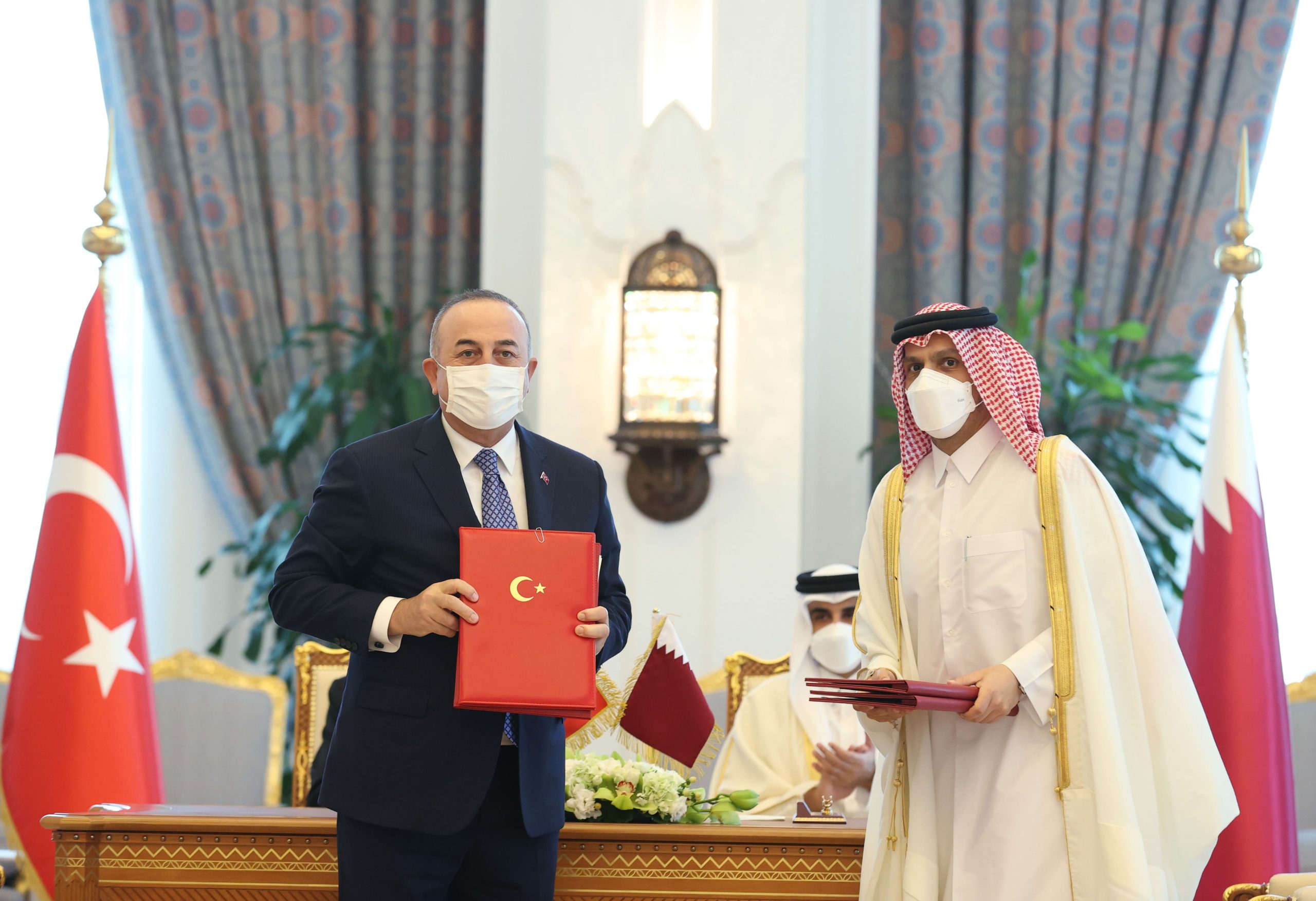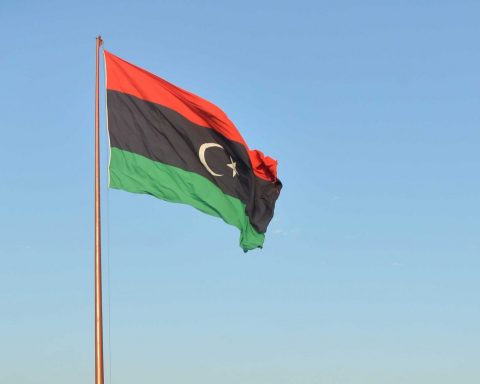In the Middle East, during the last decade, one of the most significant relationships has been the political, military, economic, and social cooperation forged by Turkey and Qatar. The extent of bilateral cooperation has increased so much that it is claimed that more than 70 agreements have been signed and 30 summits have been held between the two countries in the last six years alone. Since the two countries’ diplomatic ties were elevated to the Supreme Strategic Committee in 2014, there has been a rise in consensus and sharing of views on political and foreign policy areas. In this manner, while the two countries’ policies were consistent in Egypt, their policy considerations have subsequently overlapped in Libya, Syria, and the Gulf. Afghanistan, in turn, may well be able to indicate the last ring of the two countries’ policy convergence.
There are major political, military, and socio-economic challenges in Afghanistan, which has been controlled by the Taliban since mid-August. At a time when the Taliban is not officially recognized by any government, it has to be acknowledged as a regional and international reality. Furthermore, limited contact with the Taliban appeared to be vital to provide humanitarian relief, transmit inclusive government demands, and evacuate foreigners and residents from Taliban control in Afghanistan. As part of other demands and the process of streamlining basic services, it is suggested that Hamid Karzai International Airport, which has been on the agenda since August, should be jointly operated by Turkish and Qatari companies. There has yet to be a final agreement reached with the Taliban, and there is a chance that the UAE may join in the operation of the airport in the future.
The recent policy moves towards Afghanistan are relevant in terms of shaping the path on which the country’s challenges will evolve, as well as marking a new area of coordination between Turkey and Qatar. The collaboration between Turkey and Qatar in terms of Kabul airport and other airports in Afghanistan might be a significant step toward fulfilling the social, economic, and humanitarian concerns of the Afghan people. In addition to making humanitarian supplies more attainable, Turkey and Qatar’s coordination on this problem may further enhance their constructive and common position in future negotiations with the Taliban. However, this does not entail that both nations completely support the Taliban leadership or that they do not have reservations about the current situation in Afghanistan as well. In any situation, it is clear that a decision will be taken based on the priorities of the Afghan people, many of whom are still facing extreme poverty and hunger.
Turkish – Qatari cooperation in practice
The latest developments in Afghanistan might well be interpreted as a humanitarian representation of Turkey and Qatar’s political and military collaboration in practice. Turkey and Qatar have formed a military partnership to a certain extent through the military training, military equipment transfer, and military base agreements signed in the 2002-2010 and 2010-2017 periods. As part of this trend, Turkey will also dispatch 3,000 police officers to Qatar to maintain order and security during the World Cup, which will be organized there in 2022. Also in the humanitarian aspect, both nations have previously worked together to create humanitarian relief corridors in Gaza.
Therefore, Afghanistan is not the first instance in which two countries have collaborated militarily and diplomatically in a conflict zone. It should be recalled that Turkey and Qatar, together with a few other powers, have formed a cooperative in Libya and Syria as well. In 2020, Turkey, Qatar, and Libya announced a military deal to strengthen the capacity of Libya’s legitimate government forces. Furthermore, Turkey and Qatar are striving to enhance intelligence sharing in Libya. The release of several Turkish individuals captured by Haftar’s forces as a consequence of Turkey-Qatar intelligence sharing is the most recent example of this.
Another area of cooperation and partnership between Turkey and Qatar in this regard is international efforts toward a peaceful resolution of the Syrian Civil War. In March 2021, Turkey, Russia, and Qatar launched a dialogue framework to seek a diplomatic solution to the Syrian Civil War. The platform, which was introduced during a joint news conference in Doha by Turkish, Russian, and Qatari foreign ministers, is projected to hold meetings in Ankara and Moscow in the future. In this regard, with the initiation of the Gulf blockade in 2017, Qatar, which had downgraded its engagement in the Syrian Civil War after 2015, virtually totally lost its interest in this war. With the establishment of this platform, Qatar has proceeded to take an active role in regional issues, in conjunction with Turkey in the political resolution of Syria’s civil war.
Recent political engagements in Afghanistan
As of August 2021, Turkey and Qatar’s political engagements in Afghanistan grew increasingly salient. One of the most compelling reasons for these engagements is the possibility of jointly operating Kabul Airport. In previous periods as well, the question of operating Afghan airports in collaboration with Turkish and Qatari companies was on the agenda, and various conversations were conducted with several stakeholders. On December 7, the two countries signed a memorandum of understanding on the issue, based on the idea of equal partnership. Turkish Foreign Minister Mevlut Cavusoglu has indicated that Turkey and Qatar may run five airports in Afghanistan collaboratively. Aside from Kabul, the airports in Balkh, Herat, Kandahar, and Khost are said to be involved in the issue. Turkish President Recep Tayyip Erdogan had also stated earlier that Turkey would be able to make such a move if security and other reasonable conditions were provided.
The rationale behind Turkey and Qatar’s proposals to keep Afghanistan’s airports open and operate them jointly is to facilitate the delivery of humanitarian assistance, which the Afghan people desperately need. In this regard, while US sanctions on the Taliban remain in place, the US Treasury’s Office of Foreign Assets Control (OFAC) has approved new licenses to allow humanitarian supplies entering Afghanistan. The agreement reached in November between the US and Qatar that the latter would represent the former’s diplomatic interests in Afghanistan, as well as the fact that the issue of Afghanistan was also on the agenda in recent meetings between President Erdogan and President Joe Biden, may indicate that the US will not be interested in preventing the Turkish-Qatari humanitarian efforts in Afghanistan.
Regarding the roles that both countries have played in Afghanistan in the past, recent developments appear more reasonable. Since the early 2000s, Turkey has had a political and military presence in Afghanistan as part of NATO missions, including efforts to safeguard the airport. In this regard, Turkey assumed a significant role following 2015, both in the context of the International Security Assistance Force and the Resolute Support Mission. On the other hand, issues such as Qatari mediation in intra-Afghan discussions with the Taliban and the US, as well as the Taliban’s opening an office in Doha, illustrate that Qatar’s position in Afghanistan is not peculiar to the current conjuncture. Therefore, in conclusion, the Turkish-Qatari political, humanitarian, and military cooperation in Afghanistan will first prioritize the humanitarian situation on the ground, and the cooperation will also probably yield certain foreign policy achievements on the side of Turkey and Qatar.













